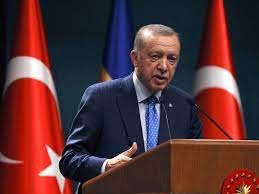On May 29, 2023, Turkey observed the 570th anniversary of the capture of Istanbul, formerly known as Constantinople, by the Ottoman sultan, Mehmed II, in 1453. However, this significant historical event was overshadowed by the recent electoral victory of Recep Tayyip Erdoğan, often referred to as Turkey’s modern-day sultan, as he began a fresh term as the President of the Turkish Republic.
The elections for the presidency and the 600-member Parliament, held on May 14, defied most predictions that suggested Erdoğan would step down and be replaced by his challenger, Kemal Kılıçdaroğlu. Despite initial expectations, Erdoğan emerged victorious with 49.5% of the vote (27.1 million) compared to Kılıçdaroğlu’s 44.8% (24.6 million). Erdoğan’s political alliance, the People’s Alliance, also secured a majority in Parliament with 323 seats, while Kılıçdaroğlu’s Nation Alliance garnered 213 seats.
The high voter turnout of 88% among the electorate of 64 million showcased the significance of these elections for the Turkish people. Erdoğan’s victory solidified his position as one of the country’s most prominent political figures. Despite controversies surrounding his leadership, he continues to enjoy considerable support among a significant portion of the Turkish population.
Following the May 14 elections, Kılıçdaroğlu recognized the shift towards the nationalist right and adopted a hard-line stance. He promised to repatriate “ten million” Syrian refugees within a year, attempting to capitalize on anti-immigrant sentiments. However, this strategy failed to attract new support or significantly sway the election outcome. Political commentators and analysts widely acknowledged Erdoğan’s advantage and predicted his victory in the runoff scheduled for May 28.
Erdoğan’s continued dominance in Turkish politics raises questions about the state of democracy and political plurality in the country. Critics argue that his presidency has seen a decline in democratic values, press freedom, and human rights. They voice concerns about the concentration of power in the hands of one individual, comparing Erdoğan’s leadership style to that of a sultan.
Supporters, on the other hand, credit Erdoğan with transforming Turkey’s economy and strengthening its international standing. They view his leadership as vital for maintaining stability and upholding national interests in a region plagued by various geopolitical challenges.
As Erdoğan embarks on another term as president, he faces the task of addressing numerous domestic and international issues. The economic recovery from the COVID-19 pandemic, managing the ongoing refugee crisis, and navigating Turkey’s complex relationships with regional powers and Western allies are just a few of the pressing matters on his agenda.
The outcome of the elections reflects the complex political landscape in Turkey, where divergent ideologies and visions for the country’s future clash. The deeply divided electorate and the strong showing of Erdoğan’s party underline the need for constructive dialogue, inclusivity, and efforts to bridge the gap between different segments of society.
As Turkey commemorates the historic capture of Istanbul, it simultaneously ushers in a new chapter under the leadership of Recep Tayyip Erdoğan. The challenges and opportunities ahead will test his ability to govern effectively, address the concerns of all citizens, and uphold democratic principles in the Turkish Republic.


